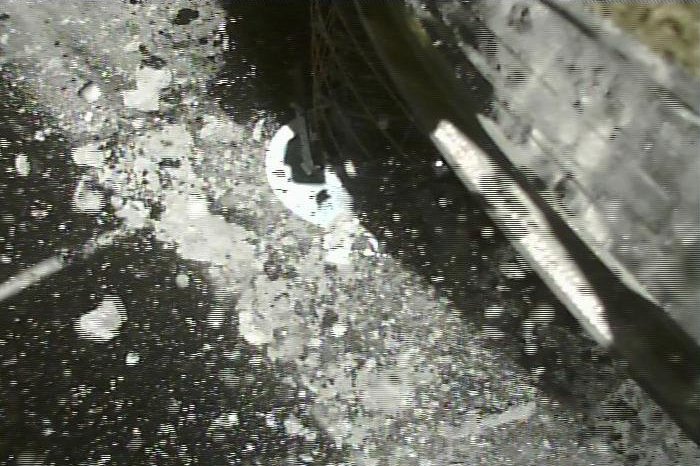Hayabusa-2's camera captured a photograph of the spacecraft just four seconds after it touched-down briefly on the surface of the asteroid Ryugu. Photo by JAXA
July 11 (UPI) -- Japan's asteroid-circling probe successfully executed a second touchdown on Thursday, collecting another sample from the surface of the space rock.
"The state of the spacecraft is normal and the touchdown sequence was performed as scheduled," the mission announced on Twitter. "Project Manager Tsuda has declared that the 2nd touchdown was a success!"
Japan's space agency, JAXA, shared images captured during touchdown on the mission's homepage. The photograph captured four seconds after touchdown shows debris from the asteroid's surface being flung into space.
The touchdown marked the second time the spacecraft has captured rocks and dust from the surface of Ryugu, a potentially hazardous asteroid in the Apollo group. The last touchdown and sample collection happened in February. Hayabusa-2 first rendezvoused with the asteroid in 2018.
The spacecraft is scheduled to leave its orbit around Ryugu in December and return to Earth in 2020. Though scientists are interested in more precisely plotting the asteroid's trajectory and the risk of its orbit intersecting Earth, researchers are most keen on studying the asteroid's composition.
"Studying Ryugu could tell humanity not only about Ryugu's surface and interior, but about what materials were available in the early Solar System for the development of life," according to NASA.
Ryugu samples could help scientists better understand how carbon-rich asteroids like it migrate from distant asteroid belts.
"We believe carbon-rich asteroids may have significant amounts of water locked up in their rocks. It's possible such asteroids may have brought to Earth both the water and the organic material necessary for life to start," Alan Fitzsimmons, astronomer at Queen's University Belfast, told BBC News. "These samples will be crucial in investigating this possibility."















